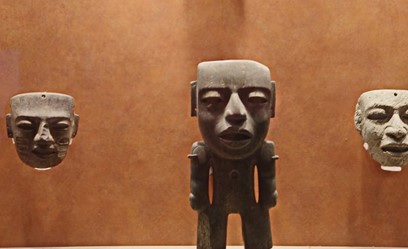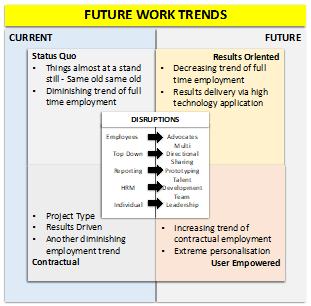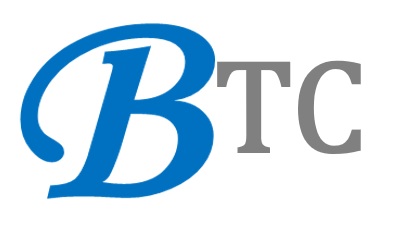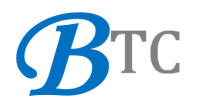
Working life fills up a big portion of our lives. On average it’s one third. Many people build their life around their work, so it’s no coincidence that some of the common questions people ask themselves when they switch jobs are:
- What should I do?
- How do I start in a new role?
- How to find a matching job?
- Which is the right company?
It’s almost like looking for a new partner or spouse. The only difference is that the voluntary separation scheme is easier to manage. Nevertheless, a job is a commitment, a relationship and a mutually beneficial engagement minus the courting and marriage. So, why is there so much apprehension when it comes to switching jobs? Could it be just human nature’s resistance to change, or could it be one’s mind-set, expectations, and experience?
Or is it because of remarks such as…
- “Even a monkey can manage that place!”
- “Fire that manager or your job is on the line!”
- “Actually, I am the greatest risk for the company as I have no successors!”
Believe it or not, these are actual quotes from chief executive officers (CEOs), so it is no surprise that there is so much apprehension when candidates want to switch jobs. Even more worrying is that these statements reflect the attitude of its CEO and culture of that organisation.
Significance of cultural anthropology in work and business. Barbara Czarniawska, a Scandinavian sociologist takes the view that, “Organisation theory has an important topic, anthropology has an important method. If the two can be put together more systematically and consistently, maybe the result would help us understand what we experience during the major part of our adult lives and career.”
Cultural anthropology is the study of cultural difference among humans based on ethnographic, linguistic, social, and psychological factors. The successful synergy of these factors could provide solutions to many of our talent, productivity and business issues faced in organisations today.
It can help us leverage corporate culture by observing its people behaviours to find the real levers and drivers of change for optimal work and business value creation.
War for talent – A cultural anomaly Today, every human resource (HR) professional is talking about the war for talent. Talent is everywhere, but if everyone is seeking the same set of generic competencies, naturally there will be a shortage. Someone will come up with an idea of a competency framework, and everyone else will jump into the bandwagon to create one. Strangely enough, though it was meant to be the unique DNA of an organisation, it derailed into a set of generic ones with little differentiation. Most of the companies’ vision and mission statements are strikingly similar. These are useful practices, but when misused, they can be abused for abnormal use. However, if companies build their competencies around their true identity, uniqueness, and positioning; real value is then created, arising from the differentiated and diversified competency pool to tap from, thus making the war for talent irrelevant.

Matters of the heart do matter!
The anthropological lens helps us see this reality in the same way that “water will always find its own level.” It is no surprise then that Google employs anthropologists to understand and leverage on the human landscape which is the key factor in predicting consumer behaviour so as to align hard business matters with heart matters. Ultimately, it’s the ‘heart’ stuff that drives the ‘hard’ stuff.
Disruptive talent models and the new job landscape A new view of talent is required. For example, there is a vast talent pool of people in their golden years whom we can leverage on, who probably won’t be switching jobs like the Gen-Ys.
Anthropology helps us line up our mindscape to the new landscape, be it in HR or business; with recent disruptions in business models such as Uber, Airbnb, Tesla, etc. Daimler Motors (Mercedes), realising these disruptions in terms of taste, trends, and technologies, have dispatched teams to Silicon Valley to study these anthropologically biased changes.
The Landscape has changed, and we need to update our maps and mental models of what is happening so that we will keep up with the tastes, trends, and technologies Similarly, working and workplace models will change in Uber style. What this means is that traditional business models will be replaced new ones, making the traditional ones obsolete, and hence the way we work will also change as shown in the diagram below. The chart represents the trends and changes in the way people will work in the future and how businesses will serve as integrators and platform providers for individuals and communities to create and add value in a symbiotic way, instead of being traditional employers. This is in line with the shared economy where internet technology will cause changes in business models linking users and providers and the way talent is deployed to support business.
Staying relevant – The Anthro way. For corporations, navigating the ‘Anthro’ way is the key to staying relevant and resilient. Working Culture will change. The corporate culture must facilitate the unlearning and relearning of new mind sets, skills and capabilities for agility and adaptability to the changing environment.The “If you know what’s good, don’t try to fix the culture” will not do anymore. Of course, you

would do well to blend in first and use your energy and time to win over your own divisional team members first. After that, put on your anthropological lens, then winning over the rest would be much easier.
Anthropology and the Paradox of business Companies want profit, economists want growth, politicians want votes, people want all kinds of things. But when these are pursued from the wrong angle, many problems will arise because we are not working with nature and human behaviour.How all this began was with the anti-anthro model of Frederick Taylor in his “Time and Motion” study that was motion without emotion. It looked at people as a cog in a corporate wheel where it is the predominant it is the driving force for most organisations.
In one of the latest surveys on productivity by IDC RESEARCH (across seven countries, found that the main triggers for productivity were quite different for different generations; baby boomers wanting better tools to do their work, Gen-X and the millennia desiring better collaboration. This clearly points to the idea that the future of leadership lies with those who can shape culture.
Culture will be the main Talent Attractor and Accelerator.
How to bring it together? The topic of cultural anthropology is vital to Talent irrespective of whether you are in a left-brain mechanistic or right-brain creative organisation. By observing culture through an anthropological lens gives you ultimately better results. Contrary to popular demands, anthropologists have always been at the bottom of the food chain and many organisational leaders of yesteryears have not acquired the art of leveraging them within organisations.
The Key to Building Super Talent is to leverage development through The Anthropological Lens. We need to re-think our current approaches to today’s business and organisational problems. To be truly sustainable, we must be in sync with human behaviour in the light of present anthropological realities and disruptions. When we do this through the anthropological lens – it brings new light, value and meaning that naturally drives sustainability – taking us from the competitive to the collaborative and co-creative plane.
“Those who do not learn from history are doomed to repeat it” by George Santayana.
This post is written by written by our Senior Advisor, Alan Teo from his book,
“Creating Winning Culture and Building Supertalent”.

